Connecting to Google Cloud SQL databases
To connect to Google Cloud SQL for MySQL/Google Cloud for SQL PostgreSQL database, create new documentation by clicking Add documentation and choosing Database connection.
On the connection screen, choose MySQL/PostgreSQL as DBMS.
Provide database connection details:
- Host - provide a host where the database is located. E.g. server17, server17.ourdomain.com or 192.168.0.37.
- Port - change the default port of Google Cloud SQL for MySQL/Google Cloud SQL for PostgreSQL instance if required.
- User and password - provide the user and password.
- Database - type in the database name or click [...] and choose it from the list.
Google Cloud SQL - instance IP
To find the instance IP, go to the Cloud SQL Instances page in the Google Cloud Platform Console.
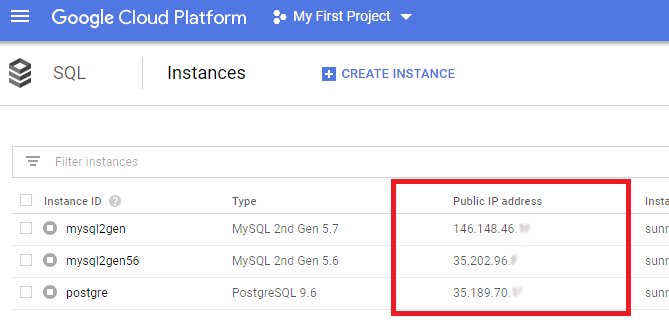
or use instance details.
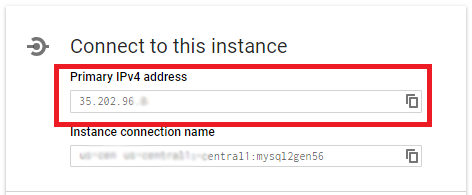
Add your IP to Authorized Networks
For security reasons, to connect to Google Cloud SQL, you need to set up your computer's IP address in the Google Cloud Console. To find your IPv4, go to http://ipv4.whatismyv6.com/ and add it to Authorized networks in the Networking tab.
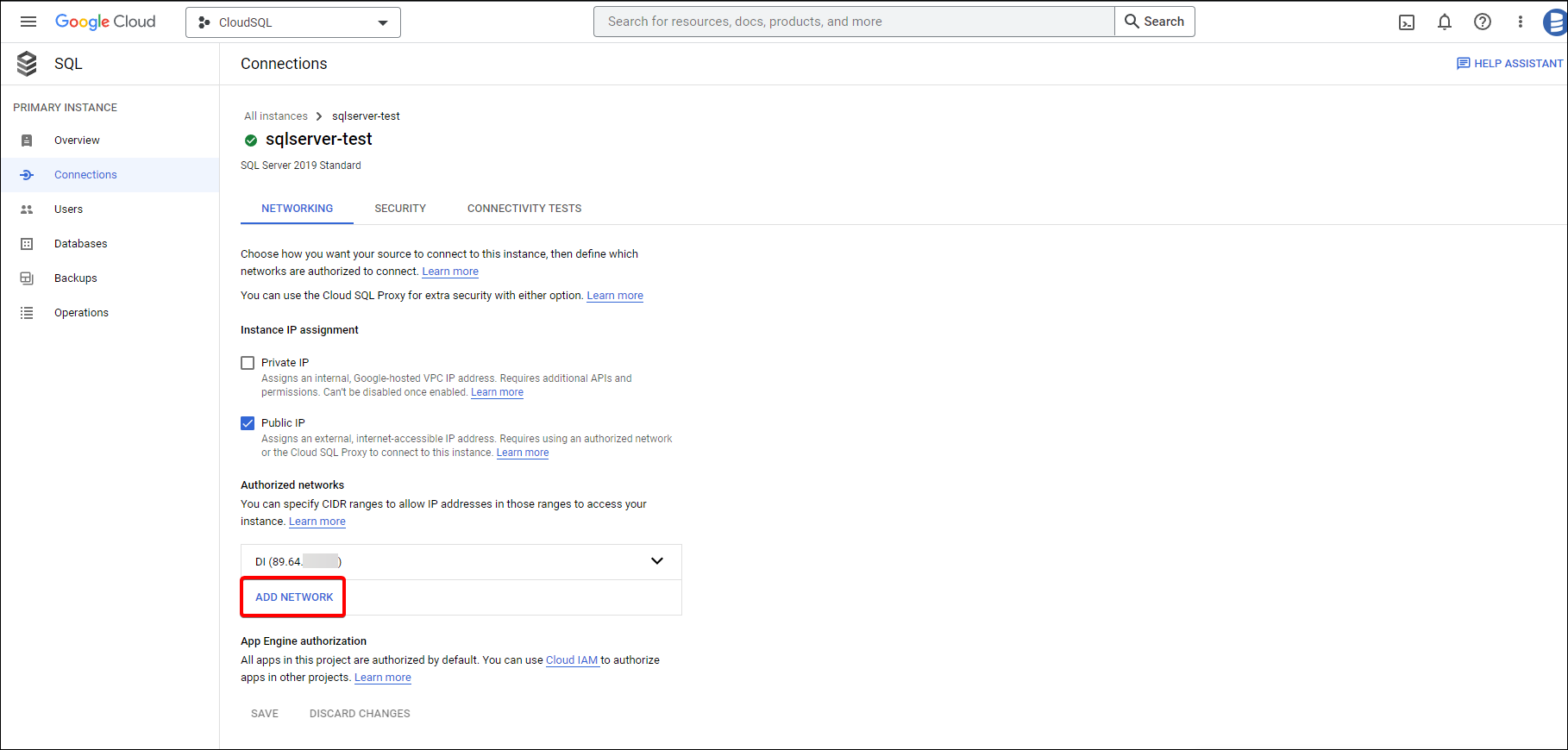
Google Cloud SQL for PostgreSQL
Here is a comparison with connection details in pgAdmin.
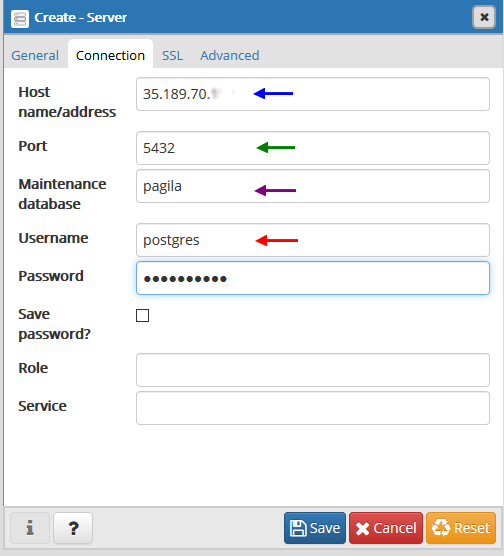
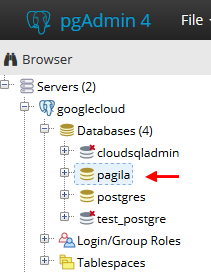
Google Cloud SQL for MySQL
Here is a comparison with connection details in MySQL Workbench.
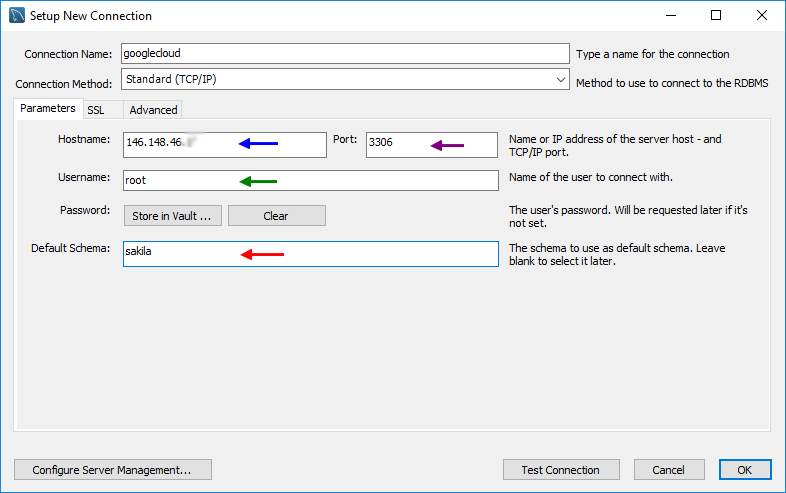
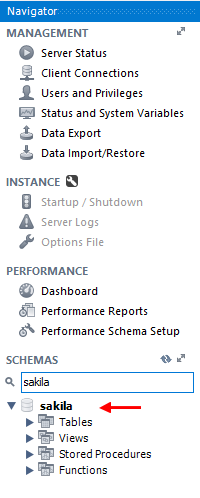
Saving password
You can save the password for later connections by checking the Save password option. Passwords are saved in the repository database.
Importing schema
When the connection is successful, Dataedo will read objects and show a list of objects found. You can choose which objects to import. You can also use advanced filter to narrow down the list of objects.
Confirm the list of objects to import by clicking Next.
The next screen will allow you to change the default name of the documentation under which your schema will be visible in the Dataedo repository.
Click Import to start the import.
When done, close the import window with the Finish button.
Your database schema has been imported to new documentation in the repository.
Google Cloud SQL support
Learn more about Google Cloud SQL in Dataedo.

